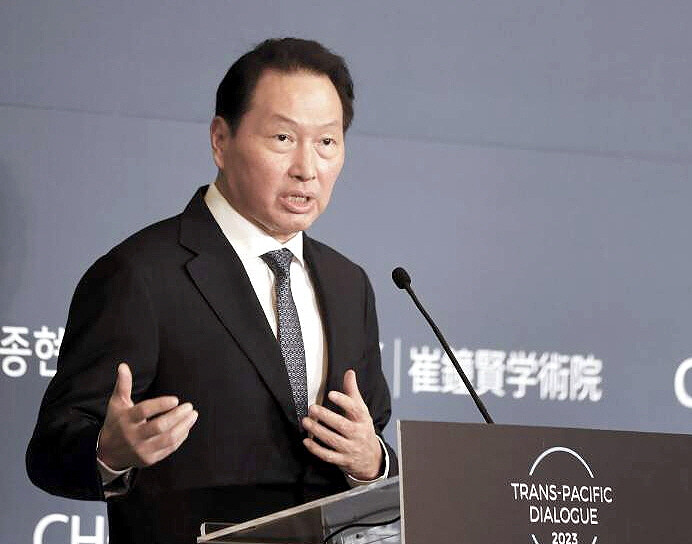
SEOUL, South Korea – Chey Tae-won, the influential Chairman of SK Group and head of the Korea Chamber of Commerce and Industry (KCCI), has issued a stark warning about South Korea's future competitiveness, emphasizing the urgent need to bolster its manufacturing sector in the face of China's swift progress in both artificial intelligence (AI) and manufacturing.
Speaking at an 'AI Talk Concert with Future Generations' held at the prestigious Korea Advanced Institute of Science and Technology (KAIST) on Tuesday, Chairman Chey stated, "Observing the rapid advancements of our competitor, China, we face a significant risk of being unable to keep pace, potentially leading to a dire situation for our industries." His remarks, reported by the KCCI on Thursday, underscore growing concerns within South Korean business and technology circles regarding China's increasing dominance in key strategic areas.
Chairman Chey stressed the necessity of a cohesive national strategy, advocating for a "pulling force" that encourages collaboration among South Korean companies. He elaborated, "If we lack a comprehensive program where all enterprises collect and effectively utilize manufacturing data to significantly enhance our manufacturing capabilities, we will inevitably be outcompeted." This call for collective action highlights the fragmented nature of data utilization and system development within the South Korean manufacturing landscape compared to potentially more centralized or coordinated efforts in China.
The AI talk concert, co-organized by the KCCI and KAIST, aimed to foster dialogue on the current state and future trajectory of AI technology and its broader societal implications. Chairman Chey's comments extended beyond the theoretical, delving into practical geopolitical and technological realities.
He addressed the potential impact of international trade dynamics, stating, "Even if tariffs imposed by figures like Trump lead to the relocation of factories away from Korea to other nations, our lack of foundational technology will hinder our success in those new environments. This is because competitors who effectively integrate AI into their manufacturing processes will be establishing those very factories." This perspective underscores the intertwined nature of advanced technology and manufacturing prowess in securing global competitiveness.
Chairman Chey further emphasized the critical role of technological superiority, using the analogy of the high demand for Nvidia's Graphics Processing Units (GPUs) as a prime example. "Our level of unique technological advantage dictates our competitiveness. The current scramble to acquire Nvidia GPUs exemplifies this," he explained. He also conveyed SK Group's aggressive strategic posture, stating, "To succeed in the global arena, SK needs to adopt a mindset of being willing to sacrifice in order to gain a decisive advantage."
Outlining SK Group's strategic direction in AI, Chairman Chey highlighted the development of "chip solutions for AI data centers" as a key priority. He added, "We are formulating plans to expand beyond traditional memory solutions and are committed to finding the most cost-effective methods for building AI data infrastructure." Furthermore, SK aims to develop "Large Language Model (LLM) type AI solutions" and explore various business models, including B2B and B2C applications within the telecommunications sector.
Chairman Chey acknowledged the significant resource demands of AI development, stating, "Given the current resource-intensive nature of AI creation, we must find innovative ways to avoid falling behind. The primary challenge lies in identifying methods to maximize the effective use of even limited resources." This reflects a broader concern among South Korean businesses, particularly smaller and medium-sized enterprises, regarding the substantial investment required to compete in the rapidly evolving AI landscape.
Concluding his remarks, Chairman Chey offered advice to the future generation in attendance: "Have a dream with a clear rationale, translate that dream into logical steps, and take action. Minimize errors by being adaptable and strategically allocating your resources." His emphasis on clear goals, logical planning, and resourcefulness resonates with the challenges and opportunities presented by the rapid technological advancements he discussed.
Chairman Chey's candid assessment reflects a growing urgency within South Korea to adapt and innovate to maintain its position in the global economy amidst the rise of China as a dominant force in both advanced technology and manufacturing. His call for a unified national strategy and a focus on technological differentiation underscores the critical choices facing South Korean industries in the coming years.
[Copyright (c) Global Economic Times. All Rights Reserved.]






























